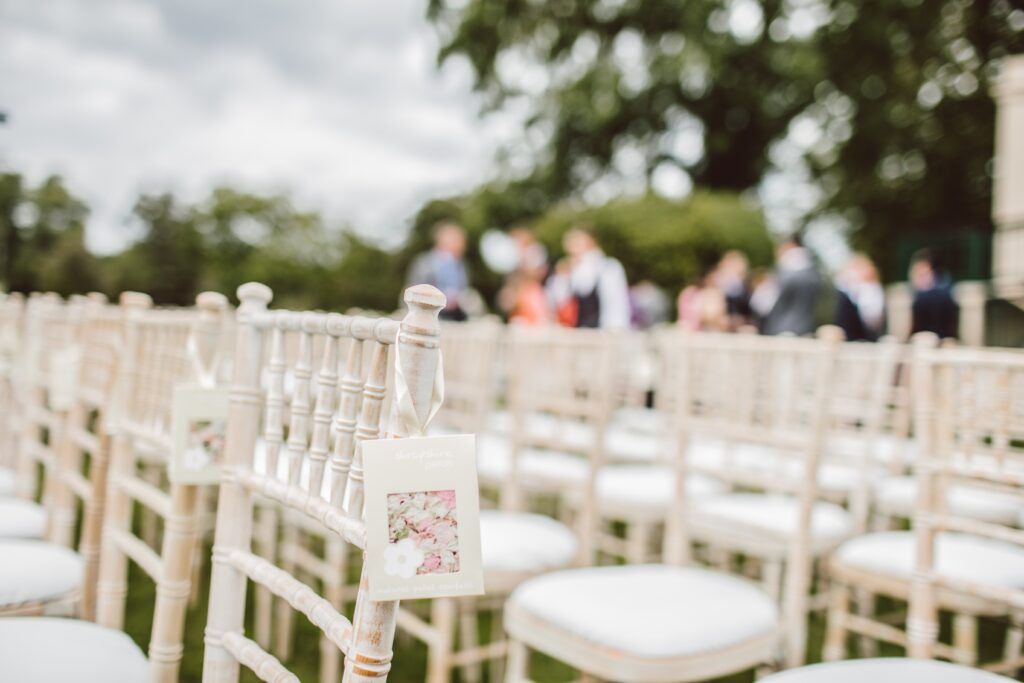Weddings are joyous occasions that bring family and friends together to celebrate the love between two individuals. As a guest, it is important to understand the rules and etiquette surrounding plus-ones. Whether you are a single guest or in a committed relationship, it’s essential to know what’s appropriate and what’s not when it comes to bringing a plus-one to a wedding. In this article, we’ll cover everything you need to know about wedding plus-one etiquette to ensure you’re fully prepared for the next wedding invitation you receive.
What is a Plus-One?
A plus-one is a guest invited to a wedding who is not specifically named on the invitation. This allows the guest to bring a date or companion to the wedding.
Who Should Get a Plus-One?
Traditionally, a plus-one is extended to guests who are in a committed relationship, engaged, or married. However, this can vary depending on the couple’s preference and budget. Some couples may opt to extend a plus-one to all guests, while others may only offer them to close family and friends.
How to Address the Wedding Invitation
If a plus-one is extended to you, it will typically be indicated on the invitation by either writing “+1” after your name or by including your partner’s name on the invitation. If your partner’s name is not included, it’s important to check with the couple to confirm if a plus-one is extended to you.
How to RSVP with a Plus-One
If a plus-one is extended to you, make sure to RSVP with the number of guests attending. This will allow the couple to accurately plan for their wedding and reception. If you do not receive a plus-one on your invitation, do not RSVP with an additional guest unless you have received confirmation from the couple that it’s acceptable.
Can You Bring a Friend as Your Plus-One?
It’s generally not acceptable to bring a friend as your plus-one unless the invitation specifically states that you can bring a guest. If you’re unsure, it’s best to check with the couple before extending an invitation to a friend.
Bringing a Date vs. Bringing a Friend
When choosing a plus-one, it’s important to consider the couple’s wishes and the formality of the wedding. If the wedding is more formal, it’s appropriate to bring a date or significant other rather than a friend. However, if the wedding is more casual, it may be acceptable to bring a friend as your plus-one.
How to Choose Your Plus-One
When choosing your plus-one, it’s important to consider the couple’s wishes and the formality of the wedding. If you’re in a committed relationship, engaged, or married, it’s appropriate to bring your partner as your plus-one. If you’re single, consider bringing a close friend or family member who you know will enjoy the wedding.
If you don’t want to bring a plus-one to the wedding, it’s perfectly acceptable to attend alone. In fact, many guests choose to attend weddings solo. It’s important to RSVP with the correct number of guests attending, whether that be just yourself or yourself and a plus-one.
What If You’re in a Long-Distance Relationship?
If you’re in a long-distance relationship and are unsure whether to bring your partner as your plus-one, consider the couple’s preferences and the formality of the wedding. If you’ve been in a committed relationship for a while, it’s appropriate to bring your partner. If you’ve just started dating or the couple has never met your partner, it may be best to attend alone.
What If You’re Recently Single?
If you’ve recently become single and had already RSVP’d with a plus-one, it’s important to let the couple know as soon as possible. It’s also acceptable to attend the wedding solo if you prefer.
What If You’re Married or Engaged?
If you’re married or engaged, it’s appropriate to bring your spouse or fiancé(e) as your plus-one. If you’re married, make sure to RSVP with both of your names. If you’re engaged, make sure to RSVP with your partner’s name.
What If You’re Attending a Destination Wedding?
If you’re attending a destination wedding, it’s important to consider the cost and logistics of bringing a plus-one. It may be more practical to attend alone, especially if the wedding is in a foreign country.
What If You’re Attending a Small Wedding?
If you’re attending a small wedding, it’s important to respect the couple’s wishes if a plus-one is not extended to you. Small weddings typically have limited space and the couple may not be able to accommodate additional guests.
Conclusion
Attending a wedding can be a wonderful experience, but it’s important to understand the etiquette surrounding plus-ones. Whether you’re in a committed relationship or attending solo, it’s important to consider the couple’s preferences and the formality of the wedding when choosing your plus-one. Remember to RSVP with the correct number of guests attending and to respect the couple’s wishes if a plus-one is not extended to you.

